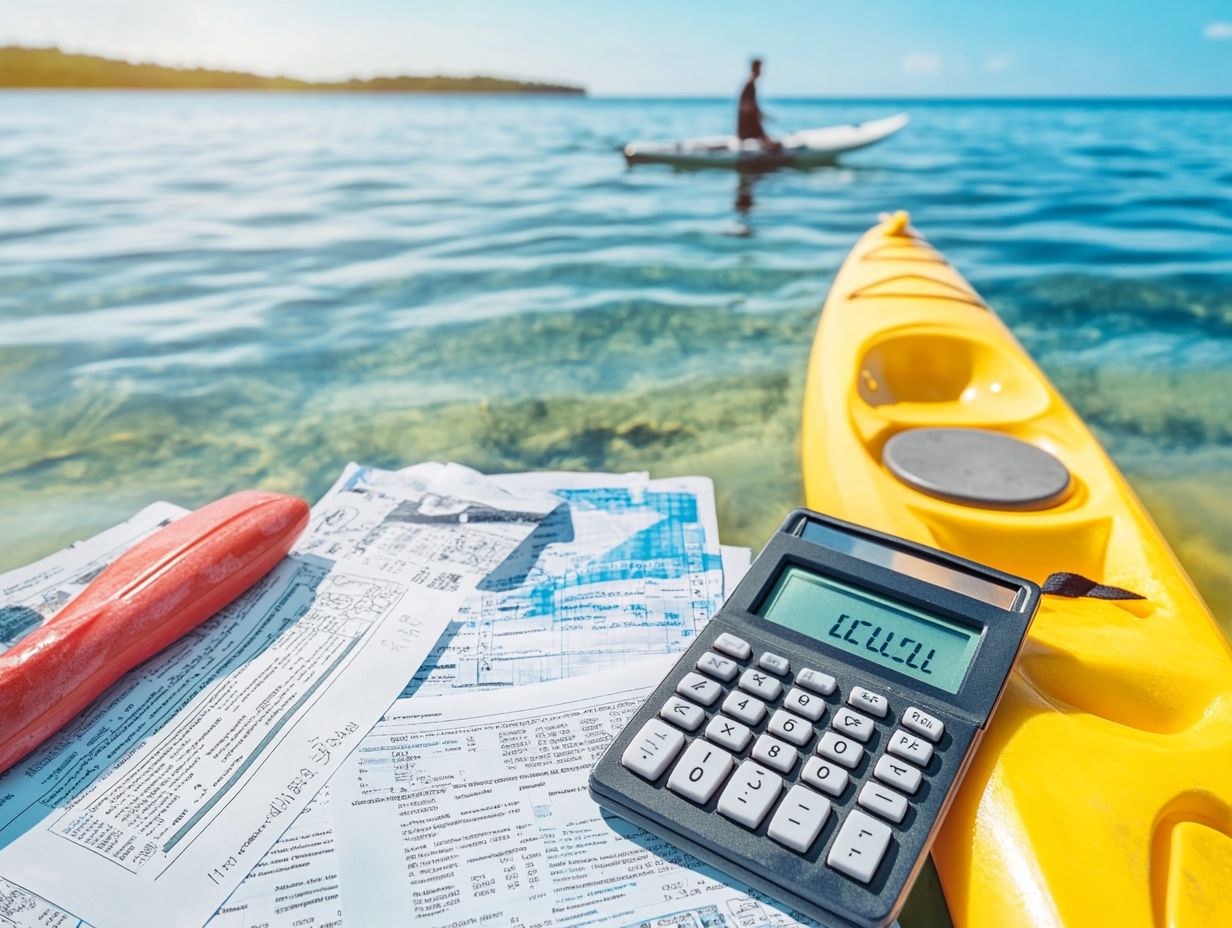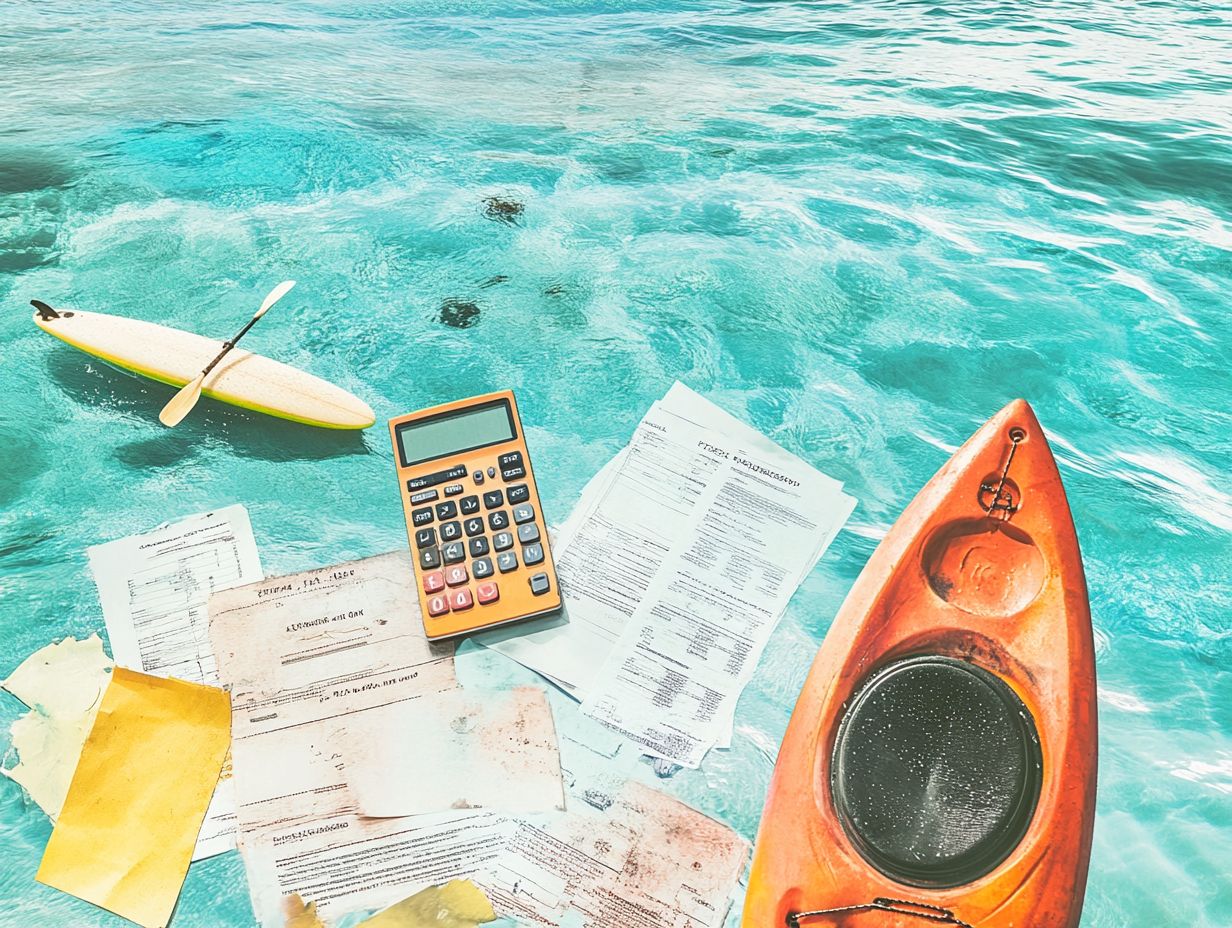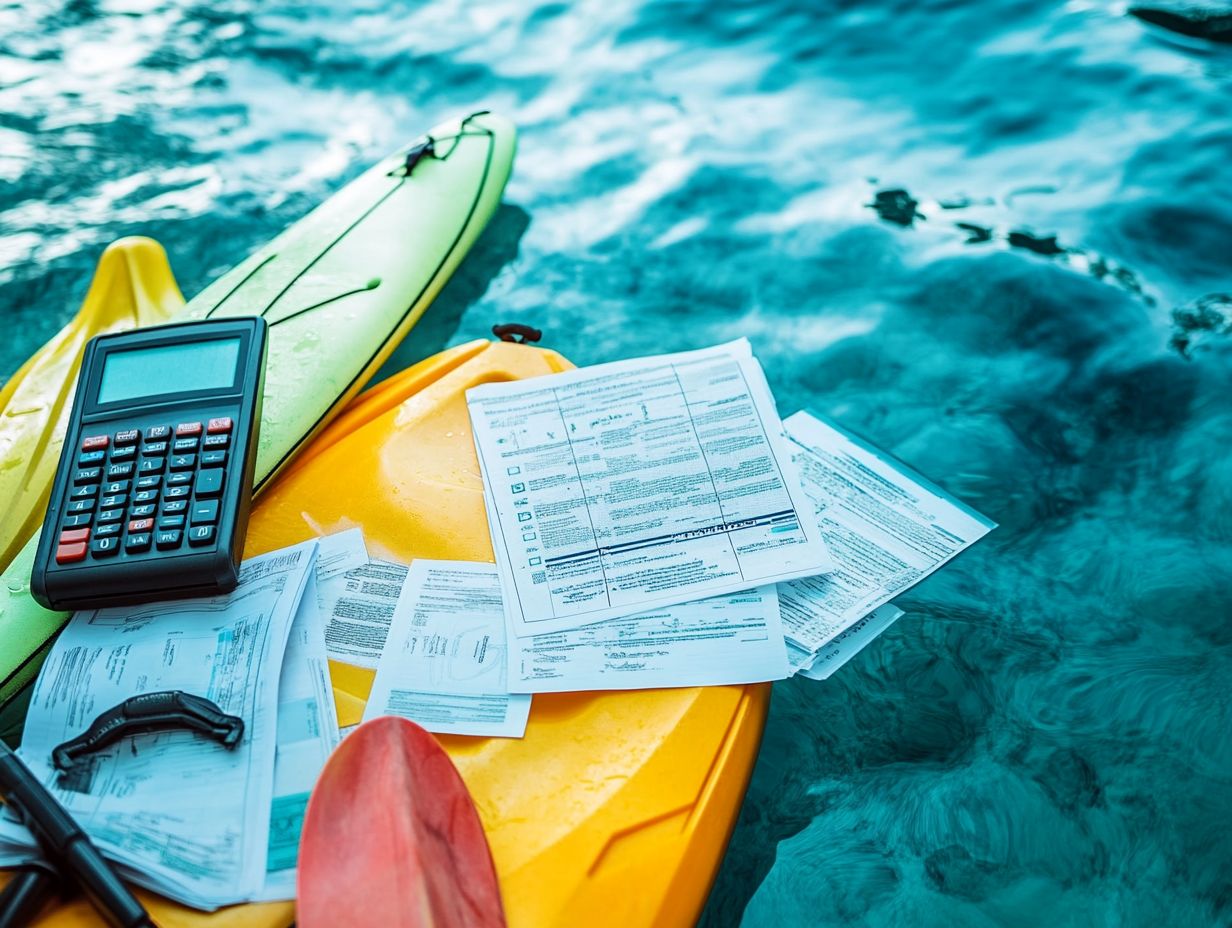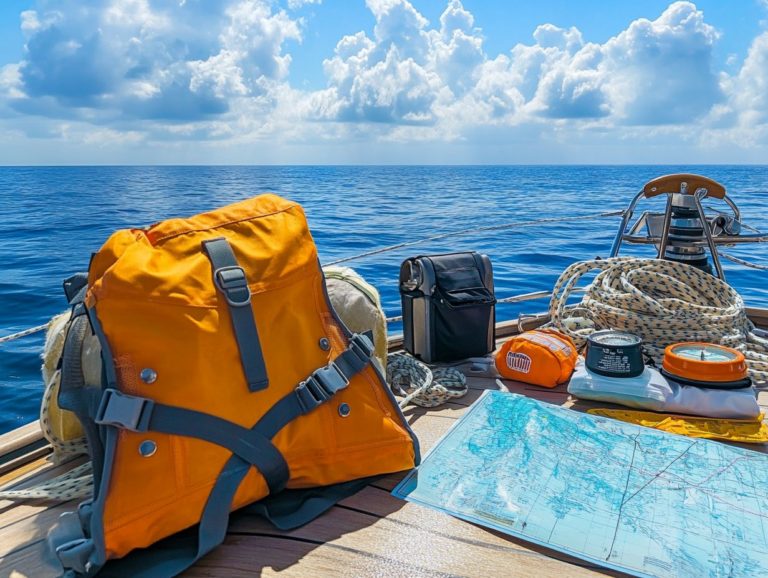Understanding Water Sports Insurance Options
Engaging in water sports can be an exhilarating experience, yet it carries inherent risks. Whether you re sailing, jet skiing, or diving, having the appropriate insurance coverage is essential to safeguard yourself, your equipment, and those around you.
This article delves into the significance of water sports insurance, the various types available, and the critical factors to consider when selecting insurance policies.
Discover how to secure the optimal insurance coverage for your aquatic adventures.
Contents
- Key Takeaways:
- Why Water Sports Insurance is Important
- Types of Water Sports Insurance
- Factors to Consider When Choosing Water Sports Insurance
- How to Purchase Water Sports Insurance and Travel Insurance
- Frequently Asked Questions
- What is water sports insurance?
- Why do I need it?
- What types of water sports are covered by insurance?
- What are some common exclusions in water sports insurance policies?
- Can I purchase water sports insurance for a single trip or do I need an annual policy?
- What factors should I consider when choosing a water sports insurance policy?
- Is water sports insurance mandatory for all water activities?
Key Takeaways:

- Water sports insurance is crucial for protecting yourself against potential risks and accidents while participating in activities like swimming, boating, and water skiing.
- There are different types of water sports insurance, including liability, equipment, and medical coverage, each providing specific benefits and protection.
- When choosing water sports insurance, consider factors like coverage limits, premiums, and exclusions to ensure you have adequate protection for your needs and budget.
Why Water Sports Insurance is Important
Water sports insurance is vital for anyone participating in aquatic recreational activities. It gives you the financial safety net you need against a range of marine risks, including bodily injury, property damage, and unexpected events such as accidents, equipment loss, or boat theft.
As activities like jet skiing, scuba diving, and windsurfing continue to gain popularity, having comprehensive coverage is crucial for safeguarding watercraft operators and ensuring peace of mind. Not having enough insurance can lead to hefty financial costs, so it s essential to assess claims history and explore tailored solutions that meet your specific coverage needs.
The Risks of Water Sports
Engaging in water sports introduces a variety of risks that make comprehensive watercraft insurance essential for managing potential hazards, such as boating accidents and unexpected breakdowns.
As a jet skiing enthusiast, you may find yourself in perilous situations due to high speeds and unpredictable water conditions. Scuba diving presents its own set of challenges, including risks like decompression sickness which is when you experience health issues after ascending too quickly from deep water and equipment malfunctions, which can escalate into serious emergencies. Water skiing, while exhilarating, demands a level of skill and can lead to falls or collisions that might result in injury.
Given these various dangers, it is vital for participants like you to seriously consider obtaining adequate liability insurance and emergency medical coverage. This provides peace of mind and eases financial worries that accidents or injuries may impose during these thrilling activities.
Types of Water Sports Insurance
Grasping the nuances of the various types of water sports insurance is crucial for choosing the right coverage tailored to your unique needs. This ensures that you are adequately protected against the myriad risks associated with watercraft activities.
Liability Insurance
Liability insurance is an essential part of your watercraft insurance, offering coverage for any bodily injury or property damage that may occur during your water sports activities.
This type of insurance is crucial in shielding you from the financial consequences of accidents that can lead to costly legal issues. For example, if you accidentally collide with another vessel, causing injuries to those on board or damage to property, liability insurance acts as your safety net, covering medical expenses, repair costs, and potential legal fees.
In the unpredictable realm of water sports, having this insurance allows you to fully embrace your adventures without the constant worry of financial repercussions. You can focus on the excitement of the experience rather than the risks that come with it.
Equipment Insurance

Equipment insurance protects your high-quality gear from theft, damage, or unexpected breakdowns risks that are all too common in water sports.
This type of coverage is crucial for passionate enthusiasts like yourself, providing a safety net for valuable items such as surfboards, kayaks, and diving equipment. By securing comprehensive insurance, you can safeguard your investments against theft and incidents like accidental damage during use or transportation. Many policies include provisions for natural disasters, so a sudden storm or rogue wave won t lead to a significant financial hit.
Understanding the intricacies of accident coverage and physical loss is essential for navigating the unpredictable nature of water excursions. This knowledge allows you to dive into your adventures with confidence and peace of mind.
Medical Insurance
Medical insurance included in watercraft insurance policies offers crucial emergency medical coverage for accidents that may face medical costs while you re indulging in water sports.
This coverage is vital for your adventures, given the inherent risks of activities like jet skiing, surfing, or sailing, where unforeseen injuries can arise, necessitating immediate medical attention. Depending on your policy specifics, you may encounter a variety of options, including liability coverage to shield against legal claims stemming from accidents or comprehensive plans that cover a wider variety of medical costs.
Many policies feature additional benefits, such as coverage for evacuation services, which is especially important when you re adventuring in remote water locations. By understanding these options, you can fully embrace your favorite sports, confident that financial support is at hand in emergencies.
Factors to Consider When Choosing Water Sports Insurance
When choosing water sports insurance, it s essential to consider various factors such as coverage limits, premiums, deductibles, and potential exclusions. This thoughtful approach ensures that you secure comprehensive protection tailored specifically to your unique needs.
Coverage Limits
Understanding coverage limits is crucial when selecting watercraft insurance, as these limits determine the extent of your financial protection in the event of a claim. These limits are important not just for liability coverage, which protects you against damages inflicted on others, but also for medical coverage addressing injuries sustained by your passengers.
The importance of equipment coverage becomes evident when considering the protection for your personal belongings or the watercraft itself. If your limits are insufficient, you may find yourself unprepared for substantial losses. Conversely, well-set limits can provide you with peace of mind and confidence while on the water.
Thus, it’s essential to assess your specific needs and usage patterns to determine adequate coverage levels that genuinely reflect the risks you face.
Premiums and Deductibles
Premiums and deductibles significantly influence the overall cost and value of your watercraft insurance policy, directly impacting your financial commitment should a claim arise. Understanding the interplay between these factors is essential for making informed decisions tailored to your financial circumstances.
As you explore watercraft insurance options, recognize that higher premiums generally lead to lower deductibles, alleviating the out-of-pocket burden during a claim. On the flip side, opting for a policy with lower premiums usually comes with higher deductibles, meaning you’ll face greater initial costs when it s time to file a claim.
Finding the right balance between manageable premium payments and adequate coverage is crucial. This approach ensures that when unexpected situations occur, you are well-protected without jeopardizing your financial stability.
Exclusions and Restrictions

Exclusions and restrictions in your watercraft insurance policy can significantly shape the extent of your coverage. It s crucial to grasp any hidden exclusions that might affect your insurance claims.
Many watercraft insurance policies come with common limitations. These can surprise even the most seasoned policyholders. Restrictions on certain types of water activities, limitations on coverage while your vessel is being rented, or exclusions related to operating under the influence of alcohol are just a few examples. Understanding these nuances is essential for managing risk. Any of these factors could lead to a denial of a claim when you need it most.
Being fully aware of your policy’s insurance limits allows you to prepare for potential financial impacts. This ensures you have adequate coverage in situations where exclusions might arise.
How to Purchase Water Sports Insurance and Travel Insurance
When purchasing water sports insurance, follow a thoughtful process. Start by assessing your coverage needs to ensure you’re protected.
Next, take the time to compare policies from various insurance partners. This will help you find the best fit for your specific requirements.
Familiarize yourself with the claims process. Knowing what to expect should you need to file a claim will set you up for success in securing the right coverage.
Where to Find Providers
Act now to find the right providers for watercraft insurance! This is essential for getting the best coverage tailored to your adventures.
Start your journey with online searches that can reveal a wealth of information about various insurance partners, including those offering personal watercraft insurance in your area.
Another excellent avenue is visiting local agencies. Knowledgeable agents can offer personalized advice and help you assess your unique needs.
Don t overlook customer reviews; they often provide valuable insights into experiences with different insurance companies. This highlights their reliability, customer service, and insurance limits. By exploring these options, you can make informed decisions and discover the best providers that align with your watercraft insurance needs.
Steps to Take for Coverage
To secure watercraft insurance coverage, follow specific steps that set the stage for comprehensive protection. Begin by assessing your coverage needs, gathering the necessary information, and completing the application process.
Examine the type of watercraft you own, how often you plan to use it, and the level of protection you require. Consider the value of your boat, any additional equipment, and whether you need liability coverage or full coverage.
After this evaluation, gather relevant documentation, such as registration details and previous insurance records to streamline your application process.
As you explore the various policies available, compare options while focusing on coverage limits, premiums, and claims processes. This will enable you to find the perfect policy tailored to your unique needs, including considerations for medical payments and deductible coverage.
Frequently Asked Questions
What is water sports insurance?

Water sports insurance is a type of insurance that provides coverage for individuals participating in water activities such as swimming, boating, and water skiing. It is important to have this insurance to protect yourself from potential accidents or injuries while participating in these activities.
Why do I need it?
This type of insurance is crucial for ensuring you have financial protection against unexpected incidents that may occur during your adventures on the water.
What types of water sports are covered by insurance?
Most insurance policies cover a wide range of water sports, including swimming, boating, water skiing, jet skiing, and kayaking. It is vital to carefully read your policy to ensure the specific activity you will participate in is covered.
What are some common exclusions in water sports insurance policies?
Common exclusions include activities like scuba diving, surfing, and parasailing. These may need special insurance coverage.
Can I purchase water sports insurance for a single trip or do I need an annual policy?
You can buy insurance for a single trip. However, an annual policy might save you money if you plan on doing multiple activities throughout the year.
What factors should I consider when choosing a water sports insurance policy?
Consider coverage limits and deductibles. Research the reputation of the insurance provider and check customer reviews.
Is water sports insurance mandatory for all water activities?
Water sports insurance isn’t required by law. However, many rental companies may ask for proof before you participate in certain activities. Having insurance is smart; it safeguards you and others in case of accidents.






